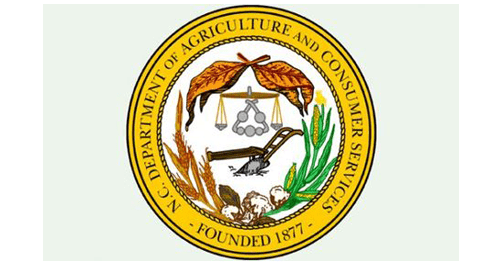-Press Release, North Carolina Department of Agriculture & Consumer Services
RALEIGH – The N.C. Department of Agriculture and Consumer Services will soon start treating for gypsy moth infestations in several areas across North Carolina. Treatment will start around June 2 through June 20. The areas to be treated include:
- Buxton, on Hatteras Island in Dare County.
- Stovall, in northern Granville and Vance counties.
- North of Roxboro in Person County.
- A large area in Surry, Stokes and Rockingham counties, including Mount Airy, Pilot Mountain, Danbury, Walnut Cove, Madison, Mayodan, and Eden.
- Baldwin Gap, along the line between Watauga and Ashe counties, northwest of Boone.
“We have a total of 11 blocks and 121,638 acres to treat,” said Chis Elder, NCDA&CS Gypsy Moth program manager. “We plan to start around June 2 in Hatteras and spread across to June 18 in Watauga, adding a couple of days to cover possible delays.”
Prior to normal gypsy moth mating periods, low-altitude fixed-wing aircraft will disperse SPLAT Gypsy Moth-Organic infused with the naturally occurring gypsy moth pheromone.
The presence of the pheromone makes male gypsy moths unable to follow the natural pheromone scent trails released by the females. This decreases mating success and reduces the gypsy moth population. The pheromone is not harmful to humans, animals or plants, and it will not affect other insect species.
Gypsy moths feed on the leaves of more than 300 different species of trees and shrubs, predominantly oaks and hardwoods. When areas become heavily infested, trees may be completely stripped of foliage, leaving yard trees and entire forests more susceptible to attacks from other pests. Severe infestations often lead to tree death. Gypsy moth caterpillars can also pose public health concerns for people with respiratory problems. In areas with high-density gypsy moth populations, the caterpillar hairs and droppings may cause severe allergic reactions.
NCDA&CS has addressed spot introductions of the gypsy moth across North Carolina since the 1970s. The treatment will be done in cooperation with the U.S. Department of Agriculture’s Forest Service, Elder said.
Public hearings were held in February and March to discuss these infestations and receive input from residents about treatment options.
For more information, including maps and a description of the proposed treatment area, go to www.ncagr.com/gypsymoth or contact NCDA&CS toll-free at 800-206-9333. More immediate updates, including spray start dates, will be posted on Twitter at www.twitter.com/NCAgriculture.
